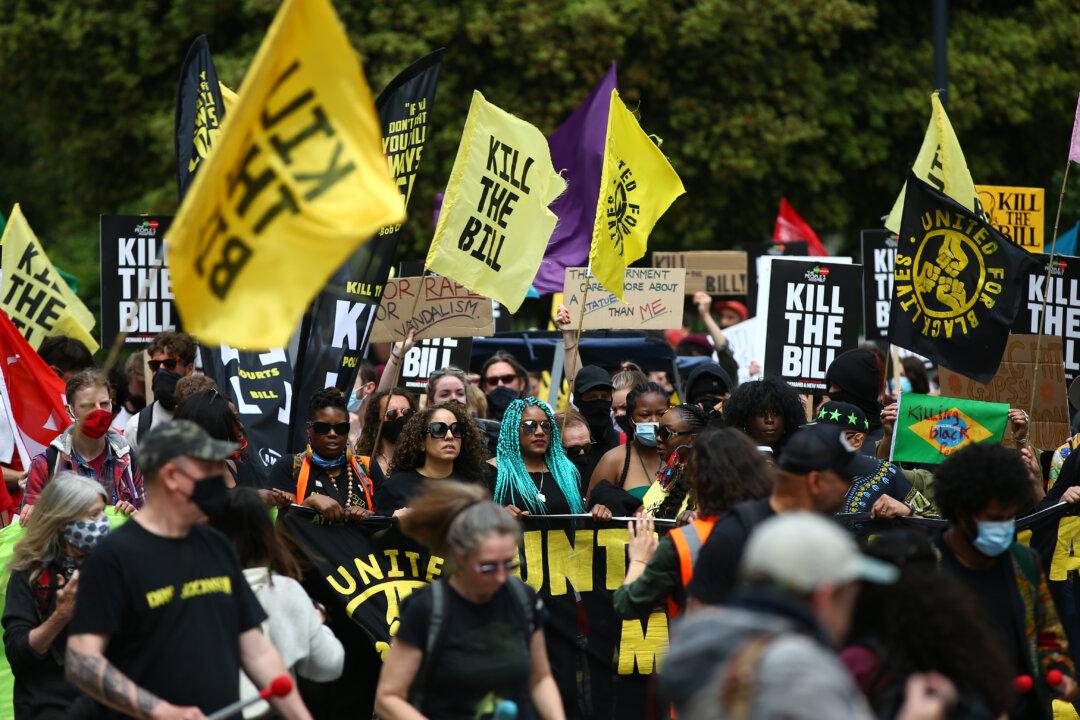Imposing time and noise limits on protests could potentially have a significant impact on the rights to freedom of expression and assembly, Europe’s human rights chief said.
The Council of Europe’s Commissioner for Human Rights Dunja Mijatović said on July 5 that she has written to UK lawmakers from both houses of Parliament, urging them to reject the provisions in a bill that would impose new limits on protests.





